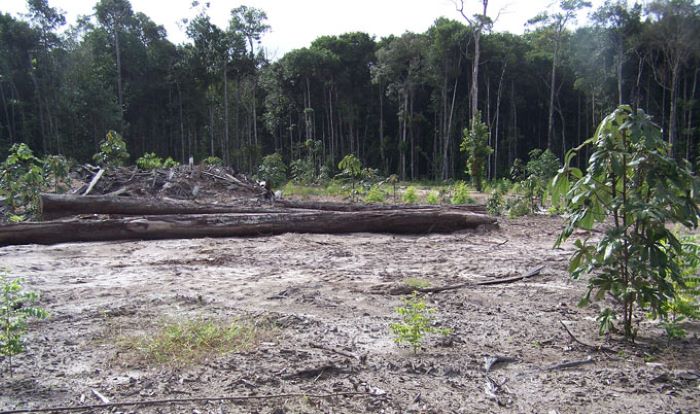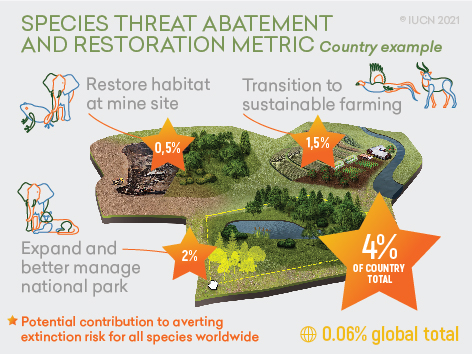Education
New Tool Offers Hope In The Fight Against Plant Extinction

New research provides key insights into which pressures are causing what damage and where.
A peace pact with nature
In a powerful speech to open CoP15, the UN Biodiversity Conference, in Montreal, UN Secretary General António Guterres said that “We are waging a war on nature” and called for “a peace pact with nature”.
The transformation of crop, livestock and timber production to make practices sustainable would mitigate the greatest drivers of extinction risk for terrestrial plant species across diverse ecosystems, according to a paper published in Conservation Biology. Knowing this allows us to begin making this ‘peace pact with nature’.
The study utilised data from Brazil, South Africa and Norway in a novel metric, to identify opportunities to reduce the extinction risk of plant species. The work was a collaboration among international scientists and conservationists, led by Newcastle University.

Species Threat Abatement and Restoration
The authors applied the new STAR (Species Threat Abatement and Restoration) metric to vascular plant species that had been assessed on national red lists. The commonality across all three countries was the considerable threat that agricultural activities pose to plant species. In Brazil, the extinction risk of the 2,791 endemic plant species included in the study could be reduced by 29% through tackling the threat from agricultural activities. The 1,894 endemic plant species studied in South Africa could similarly have their extinction risk reduced by 36%, while Norway could see a 54% reduction in the extinction risk of the 301 terrestrial plant species studied.
The unique situation of each country was revealed by identifying further opportunities to reduce species extinction risk. In Brazil, mitigating the threat from urban expansion could reduce species extinction risk by 21%, while mitigating the threat from fires, which are driven by climate change and deforestation, could reduce extinction risk by a further 10%. In South Africa, invasive species pose a major threat to endemic flora, and tackling this threat could reduce the extinction risk of plants by 21%. In the high-latitude country of Norway, a 39% reduction in species extinction risk could be achieved by tackling the threat from climate change, which is a particularly difficult challenge for conservation, given that climate change cannot necessarily be tackled locally.
Lead author, Dr Louise Mair, of Newcastle University’s School of Natural and Environmental Sciences, said: “The study demonstrates the importance of considering the conservation needs of as great a diversity of species as possible. While the greatest opportunity to reduce the extinction risk of both terrestrial plants and terrestrial vertebrates, such as amphibians, birds and mammals, comes from mitigating threats from agriculture, the relative importance of tackling other threats differed for plants compared to a previous study on terrestrial vertebrates.”
“Although few endemic species occur in Norway, this study shows that Norway can indeed contribute to reducing global extinction risks through maintaining populations of arctic-alpine vascular plants”, said Dr Magni Olsen Kyrkjeeide from the Norwegian Institute for Nature Research.
MSc. Lara Monteiro, a collaborator at the International Institute for Sustainability and Ph.D. candidate at the Natural Resources Graduate Program at the University of Vermont (US), and MSc. Eduardo Fernandez, co-chair of the IUCN SSC Brazil Plant Red List Authority and coordinator of the Red List Unit at the National Centre of Flora Conservation in Rio de Janeiro Botanic Garden (Brazil), add: “Besides demonstrating the importance of tackling different threats affecting the Brazilian flora persistence, this study also highlights the considerable research effort Brazil has achieved so far, and the importance of investing in the expansion of national red list assessments to detect Threatened and Near Threatened species.
“Developing research on more effective actions to combat and mitigate species loss under climate change scenarios, such as forest landscape restoration, can help us to bring back from the brink thousands of species that are currently facing extinction and, thus, allow for the achievement of national targets.”
Capturing a greater diversity of species
National red lists provide an essential resource to allow such analyses to capture a greater diversity of species; just 13% of plant species have a global assessment of extinction risk, yet South Africa has made a national assessment of all 20,401 plant species within its borders, while Brazil has assessed nearly 22% (7,830 out of 35,683 species) of its highly diverse flora. Analyses that utilise national red list data, such as presented in this study, not only facilitate the inclusion of a greater diversity of species, but also provide insights into the unique conservation context of each country.
The STAR metric applied in this study provides a tool to allow local and national decision makers to assess their potential contribution to the global reduction of species extinction risk, allowing them to engage in international conservation policy processes through the lens of their national context. Such analyses will be critical to support species conservation in the post-2020 Global Biodiversity Framework that is currently being agreed at the Fifteenth Conference of the Parties to the Convention on Biological Diversity, in Montreal.
Source – Newcastle University
-

 Auto2 years ago
Auto2 years agoHonda Marine Debuts All-New BF350 Outboard Company’s First V8 Motor Available Commercially, Flagship Model Offers Premium Power and Unparalleled Performance for Extraordinary Boating Experiences
-

 Auto2 years ago
Auto2 years agoNew Features Further Increase Desirability Of Bentayga Range
-

 Technology2 years ago
Technology2 years agoOracle Partners with TELMEX-Triara to Become the Only Hyperscaler with Two Cloud Regions in Mexico
-

 Auto2 years ago
Auto2 years agoHonda and Acura Electric Vehicles Will Have Access to Largest EV Charging Networks in North America Aided by New Agreements with EVgo and Electrify America
-

 Lifestyle2 years ago
Lifestyle2 years ago2023 Nike World Basketball Festival Brings the Best of Basketball Style, Culture and Community














